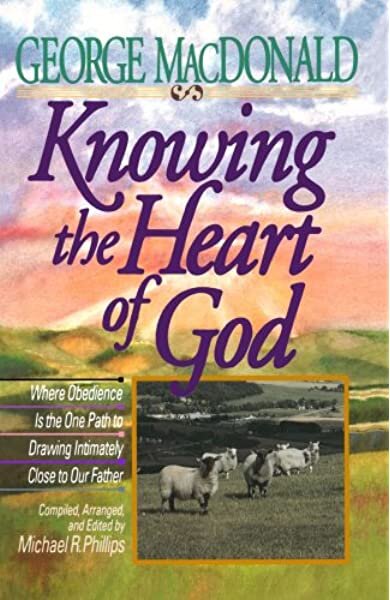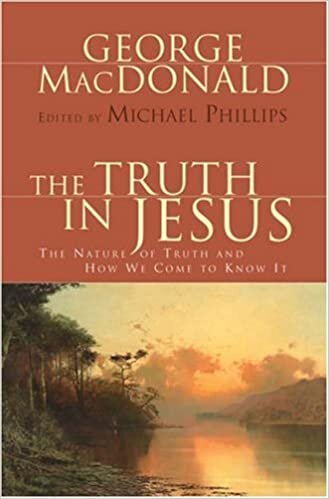Getting at the ‘Gold’ of MacDonald’s Theology: Studies and Compilations
By Michael Phillips
The following excerpt from the Preface to The Gospel According to George MacDonald will explain why I have produced a dozen new editions and compilations aimed at helping readers “get at the gold” of MacDonald’s theological writings.
For the purposes of this volume, I have chosen those writings and selections…that specifically illuminate George MacDonald’s perspectives about the nature of God, Jesus’ work in the lives of believers, and God’s methods and purposes for accomplishing his will in eternity.
Within the selections I have carried out minimal structural editing where doing so brings out MacDonald’s meaning with greater luminescent clarity. There are those who take exception to the idea of “editing” another’s work. But the fact that MacDonald’s originals are cumbersome for many readers seems justification enough for doing so. My goal is to make MacDonald’s wisdom and prophetic insight about God readable and grasp-able to anyone willing to put in the effort to understand his occasionally controversial ideas. However, to extract the ore from MacDonald’s writings requires some effort. It is my hope that the slight editing I have employed will make these rich veins within MacDonald’s thought more linguistically accessible to a broad cross-section of readers.
This is not to say, even now, that this will be a light read. MacDonald’s ideas and processes of thought are profound. We are not used to having to think quite so hard for our spiritual food. We live in a superficial age where doctrinal formula and personal experience are the parameters by which spirituality is judged. MacDonald’s unique perspectives take some getting used to. Many passages require two or three readings. But spiritual gold always awaits, occasionally buried deep but always ready to shine out brilliantly from the page when the moment of revelation comes.
Some will raise the question why abridgment and editing are necessary at all. Why not simply go to MacDonald’s originals? For two reasons: The complex progression of MacDonald’s ideas, and the elaborately entangled grammatical constructions in which he expressed these ideas.
I would not presume to call MacDonald’s logic other than straightforward. However, as his logic progresses it brings in its train multitudinous tangential modifiers and explanations and offshoot points. It occasionally becomes difficult to follow the primary sequence of ideas. Additionally, MacDonald’s Victorian grammar and syntax can become extremely involved and can itself impede understanding. Sentences of 100-120 words are common, and occasionally reach over 200. One sentence in his story The Wise Woman is 401 words in length! Such sentences are hard to untangle. These often contain a half dozen semi-colons, several dashes, numerous commas, and a colon or two. MacDonald can use every punctuation mark in a single sentence! Likewise, his paragraphs are extremely long and can run to five or six pages.
Simplifying the complexity of the originals in these two areas—thought progressions and grammatical constructions—enables MacDonald’s meaning and his wonderful expressiveness to rise to the surface with more radiance. I am confident that most will find, as I do, that the ideas are much easier to grasp with a little more white space on the page…with some restructuring and reordering into more straightforward progressions…If MacDonald’s meaning can be…enhanced by reducing the sentence length and presenting his ideas in more a “straight line,” it only makes sense to do so…
Where MacDonald’s originals are straightforward and clear, they are reproduced without change. Where the word-thickets are complicated and the sentences long, then structural adjustments have been made but most of his actual words kept exactly as they first appeared.
I am aware that it is a high and holy calling to try to recast the writings of another into new forms that faithfully represent his meaning and intent. It is with prayerful trepidation that I undertake such a task with MacDonald’s spiritual writings. My goal is always to preserve MacDonald’s style, his syntax, his communication methods, and his words, while bringing his wisdom and transformational ideas more radiantly to the surface by the use of minor structural modifications.
Along with this, we must remember that some of these selections are more than 150 years old. Methods of communication have changed. Words themselves have changed. For the sake of clarity, where meanings and connotations have shifted, some of these issues have also been addressed. MacDonald uses car, truck, bus, van, freak, and pathetic, as but a few examples of words that are familiar to us—the first four appearing in his books long before the invention of the automobile—but which today convey an entirely different meaning than they did in MacDonald’s day. Likewise, I have replaced simulacrum, Hyperion, palimpsest, adytum…and the like. Such words may be looked up in a dictionary, but how many would do so? There are scores of examples, not to mention MacDonald’s propensity for the more than occasional “five-dollar word”—nephelocockygia, tergiversation, chrysprase, pellucid, meridional, deglutition, adumbration, deinotherium, parhelion, and dozens more…
Even with such adjustments, MacDonald’s language may still sound somewhat laborious. While untangling lengthy sentences and paragraphs into more straightforward progressions, I have yet tried to retain the essential character and flavor of MacDonald’s modes of expression. Some of what follows, therefore, may still be hard going. In “Man’s Highest Privilege” MacDonald probes the depths of the very Godhead itself. This is no self-help, experiential treatise in “Christianity Lite.” This is theology at its most profound.
For more information on the following suggested selections, see “Studies and Compilations of MacDonald’s Theological Writings by Michael Phillips” in the Resources section of Non-Fiction works.










